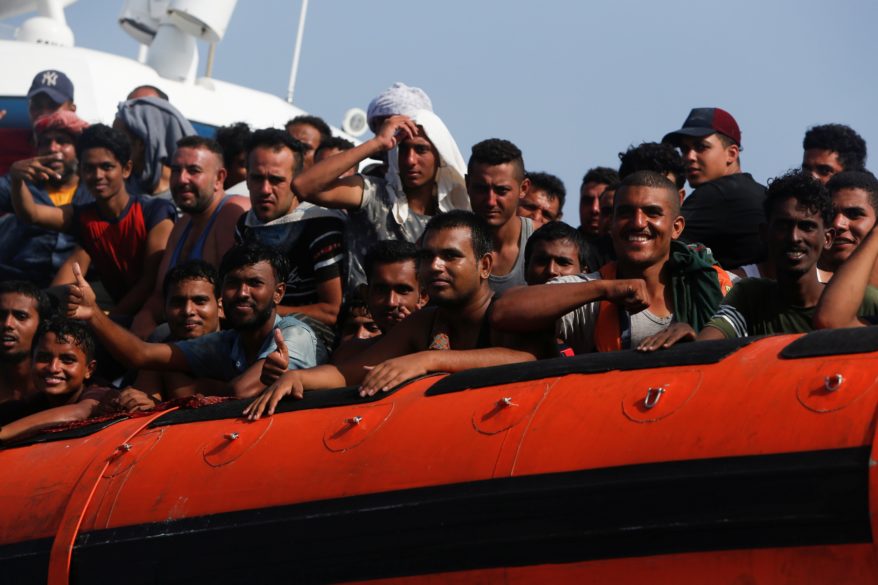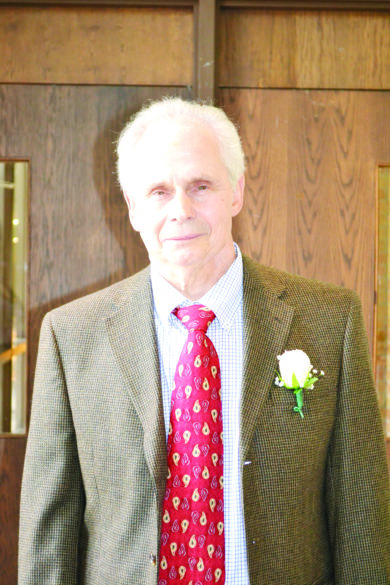THEOLOGY AT THE MOVIES
By James Tomek, Ph.D
Two recent “lifeboat” movies on the TCM channel (Turner Classic Movie) brought me back to my SpringHill College ethics classes under Father Fred Gunti, the moral theologian of the department. Which film would he choose to analyze? The more famous one – the 1944 Lifeboat, an Alfred Hitchcock film, dramatized the experiences of nine people as they faced the new possibilities of living with very limited supply of basic needs, and with a moral question of what to do upon the chance arrival of the Nazi Captain of the submarine that torpedoed their Merchant Marine ship. The other survival film, and Father Gunti’s choice, is Richard Sale’s 1956 Abandon Ship about what to do with an overcrowded lifeboat.
Hitchcock’s Lifeboat is an excellent study of how people reveal themselves when put in an extraordinary “lifeboat” position. While they do resort to mob violence against the Nazi captain, their actions can be justified. The other film is morally complex. After an ocean liner hits a mine, there are 27 survivors converging on a lifeboat equipped for 9 to 13 people. Half the survivors have to stay in the water. Do we sacrifice some people for the benefit of others? I will focus on this film and expand the notion of “lifeboat ethics,” an issue studied in Father Fred Gunti’s class on social ethics.
Abandon Ship takes on the heavier moral issue of what to do in an overcrowded world. The executive officer of the sunken ship, Alec Holmes (Tyrone Power), is in charge of the boat and, at first, alternates those in the water with those in the boat, trying to save everyone. As conditions worsen, the ocean liner’s wounded engineer, Frank McKinley (Lloyd Nolan), advises Holmes that he needs to “evict” at least half the passengers, if the rest hope to make it to safety. Holmes resists for a while and then finally decides to save as many people as he can by “jettisoning” the weakest, since the strong are needed to row. The other ship’s officer on board Bill McKinley (Stephen Boyd), refuses to obey Holmes’ orders. As he goes overboard with a sick woman, he tells Holmes, “You have the wrong boy.”
Holmes becomes more and more ruthless as he chooses which expendable members are to be put over the side. He is ready to sacrifice himself when he becomes wounded, but a rescue ship arrives with the film’s epilogue, telling us that Holmes was convicted of murder, but was sentenced to only six months, due to the extenuating circumstances. The film was based on a true story of 1841 where seventeen members of a crowded lifeboat were sacrificed when their ship hit an iceberg.

Father Gunti might ask: What are the rights of those in the boat? Those in the water?
What is the moral thing to do? Can we enunciate some principles? Some relevant questions?
Do the ones in the boat have first rights? Do we save the weak first? Do we want optimum chances for the most people?
Or he may open the lifeboat to the world metaphor. The ocean liner is the world. The lifeboats are the rich nations. The people in the water are from the poor nations – boats that have sunk. What moralists call the Tragedy of the Commons – the air and water are like a “well” from which the whole world can share. If left uncontrolled, it will run out. Technology speeds up use. Immigration creates the commons – a cheap labor supply that will eventually cause supplies to dry up.
Carrying capacity is an issue. The land on the Earth is like a pasture. Each pasture has an ideal carrying capacity. Disaster occurs when carrying capacity is ignored. Further complications arise from the changes in climate and the vast unevenness of rainfall and the increase in powerful storms that destroy areas, especially where the poorer of our populations live.
Father Gunti would probably use the concept of proportionality to help guide our responses. We analyze the situation, delineating and then weighing the possible goods and evils of an action. The decision – do we use the greater proportion of what is the best good? or the least evil? If it is just a lifeboat, I think we have to keep as many people alive for as long as possible. The “religious” individual response, I hope, would be to volunteer to die. The “ethic” response would be to weigh the pluses and minuses of whom should be accepted and turned away. Wow! As a metaphor of the overcrowded world, we need bio-ethical studies to help us use the Earth in a conservative manner. This would take a central world authority on the line of the United Nations or a World Bank.
Father Tom Lalor, a SpringHill graduate of their theology Master of Arts program, suggested to me to follow in his path, which I gratefully did. His favorite teacher was Father Fred Gunti whom he called an excellent moral theologian who could break down issues and rebuild them with positive answers.

We are in an overcrowded world of immigration issues with real people suffering. The climate problems that we are having have also affected the rise in immigration. If the solution is that we jettison all the poor, I hope that I can say, like the Stephen Boyd character in Abandon Ship, “you have the wrong boy.” We need to find better solutions. This is where we need Father Gunti.
(James Tomek is a retired language and literature professor at Delta State University who is currently a Lay Ecclesial Minister at Sacred Heart in Rosedale and also active in RCIA at Our Lady of Victories in Cleveland.)
